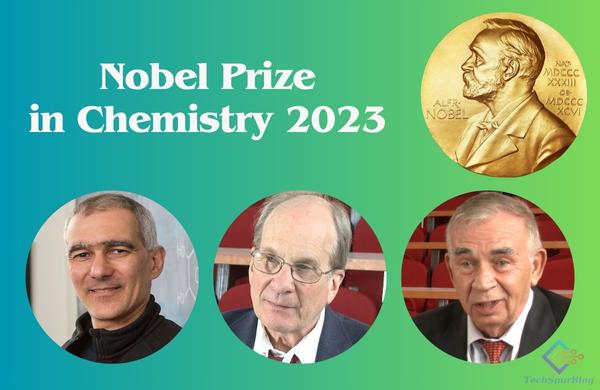
The Royal Swedish Academy of Sciences has awarded the prestigious Nobel Prize in Chemistry for 2023 to three distinguished scientists based in the United States: Moungi Bawendi from the Massachusetts Institute of Technology (MIT), Louis Brus from Columbia University, and Alexei Ekimov from Nanocrystals Technology. The honor recognizes their groundbreaking work on the “discovery and synthesis of quantum dots,” which was announced today, October 4.
Quantum dots, also known as nanocrystals, are artificial semiconductor nanocrystals that have the remarkable ability to convert incoming light into a different energy output frequency. Typically measuring between 2 and 10 nanometers in diameter, equivalent to 10-50 atoms, these tiny structures exhibit unique optoelectronic properties that enable the tuning of energy levels with their wavelength or color.
The Nobel Prize in Chemistry for 2023 underscores the transformative impact of the trio’s research on quantum dots. These microscopic wonders have opened up a world of possibilities in the fields of materials science, electronics, and photonics. Quantum dots have found applications in a wide range of technologies, from advanced displays and solar cells to biomedical imaging and quantum computing.
Moungi Bawendi, a Professor of Chemistry at MIT, has played a pivotal role in the development of quantum dot technology. His work has focused on tailoring the size, shape, and composition of these nanocrystals to achieve specific optical properties, making them versatile tools in various applications.
Louis Brus, a Professor of Chemistry at Columbia University, is renowned for his pioneering work in understanding the fundamental properties of quantum dots. His contributions have advanced our knowledge of the quantum mechanical behaviors exhibited by these tiny structures.
Alexei Ekimov, from Nanocrystals Technology, has been instrumental in scaling up the production of high-quality quantum dots. His efforts have paved the way for the practical integration of quantum dots into commercial devices and technologies.
The ability to manipulate light at the quantum level by harnessing the properties of these tiny semiconductor crystals has unlocked new frontiers in science and technology. Quantum dots are capable of emitting highly pure and vibrant colors, making them valuable components in display technology, as well as efficient and tunable light sources.
The Nobel Prize in Chemistry is one of the most prestigious awards in the field, recognizing outstanding contributions to the understanding of the molecular and atomic mechanisms that govern our world. The 2023 laureates, Moungi Bawendi, Louis Brus, and Alexei Ekimov, join the ranks of esteemed scientists who have shaped our understanding of the natural world.
Also Read: Unlocking Innovation and Collaboration with Bard
Their groundbreaking work on quantum dots not only opens doors to exciting future advancements but also underscores the importance of interdisciplinary research in pushing the boundaries of scientific knowledge. These tiny wonders, with their big potential, are poised to drive innovations that will shape our world for years to come.

Leave a Reply